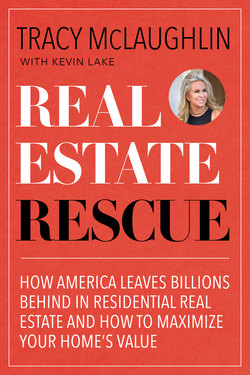Читать книгу Real Estate Rescue - Tracy McLaughlin - Страница 11
На сайте Литреса книга снята с продажи.
ОглавлениеI once represented the seller of a home in Mill Valley, a charming town just across the Golden Gate Bridge from San Francisco. After making extensive constructive improvements to the home, I showed the sellers the numbers on the most recent home sales in their community. I also brought in five colleagues to provide their objective opinions of value. The comps, the other agents, and my own valuation all pointed to a market value between $3.5 and $3.6 million. As I reviewed the data with Linda, the owner, I could sense an immediate resistance to the suggested list price. When I concluded my presentation, Linda didn’t comment on any of the numbers we had painstakingly assembled. She responded, “I think my home is worth $3.8 million,” and provided her rationale.
Linda’s valuation was a product of her original purchase price, the money she had invested in the house, the length of time she had owned it, the sale price of a couple of her friends’ homes in an adjacent neighborhood, and a reading from her astrologer who said she saw a three and an eight in the home’s value.
Remember, this is California.
Linda left the meeting tight-lipped and went dark for three days. We couldn’t launch the listing on the MLS as scheduled. My hands were tied, and we were up against the clock for the scheduled broker’s open. Finally, Linda returned my call, and I said, “You have to trust me. I’ve been doing this for a long time, and I have nothing but your best interests at heart. We just spent three months making constructive improvements to sell your home for the highest price. You’re going to shoot yourself in the foot if you over-price your home. You want $3.8 million. If you list at that price, it will sell between 3.4 and $3.5 million because of the perception that it’s overpriced.”
Linda reluctantly agreed to put it on the market at $3,595,000. Several buyers emerged. An agent called and reported that his client could only afford the list price, and they knew it would go over asking. He asked, “Should my client still make an offer?” “Absolutely,” I advised. “You never know what’s going to happen. Please have them write the offer.” In real estate, you want offers from the people who can only afford the listing price to drive interest from the people who can pay more for the house. When a more qualified buyer who can afford more knows someone else is in play, that buyer will often pay more. Competitive bidding pushed the price up and the house sold for $4.2 million. By following my advice and strategic pricing, Linda made $400,000 over what she originally wanted for the house!
So how do you arrive at the magic number to price a home? For every home I sell, I undertake the same price-setting process. I complete the comparative market analysis (CMA). Then, I bring in four to seven colleagues to give me their opinion on a home’s value. Finally, I meet with the seller to set the listing price. I present the market data, the opinions of my colleagues, and my own opinion about the listing price of the house. I then ask for the seller’s perspective. Sellers, like Linda, generally have higher numbers in mind. They ask, “How do I know I won’t be underpricing the house?”
The pricing strategy for a home dramatically impacts the financial success of the transaction. Agents will give different advice about the appropriate pricing tactic. Many will tell you that a higher-than-market price begets a higher-than-market sale price; in the worst case, the real estate crosswinds will blow you back to market value. Others recommend listing the home under market value with a view toward attracting more offers, to drive the sale price over asking, and possibly well above market value.
The answer is that setting the price in the middle or lower end of the range of a home’s value generates the biggest return for the seller in any market. The market always drives a home to its absolute highest value in the short term if the property is priced at or below market value. But the housing market is not nearly as kind if a home is overpriced. The market doesn’t necessarily take the asking price down to real market value. It often pushes the home well below its real value, for practical and psychological reasons.
I used to think the market was efficient on the upside but inefficient if overpriced, but that’s not the case. Real estate economist Selma Hepp points out, “The market is actually overcorrecting in both instances. The market adjusts beyond what’s usual, beyond market value.”
Let’s examine the psychology underpinning these dynamics.
Going, Going, Gone
In real estate, you will never be in a better position than waking up with two or more offers waiting in your inbox. The pressure of competition is what drives buyers to pay more than market value for a home, enabling sellers to get a sale price that would not have been possible had the home originally been listed at that price point. Unless buyers experience the pressure of another bidder, they will take their time and act rationally.
When selling a home, I create a pricing structure that makes prospective buyers feel like they are going to lose it if they don’t act immediately. A perceived lower starting price energizes buyers to engage—and when there’s a crowded field, buyers’ behavior becomes less rational. With the pressure of just one more bid, buyers of a home quickly find themselves willing to overpay in order to win the home away from the others.
